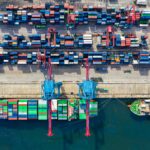The Rana Plaza disaster in 2013, in Bangladesh, spurred businesses to focus on ethics and fundamental human rights across their operations and supply chains. So far, we have transitioned from normative guidelines and voluntary disclosures to mandatory regulations. Across the world, from the United Kingdom’s Modern Slavery Act , to the French Duty of Care law, and the more recent German Supply Chain Act, a growing number of countries are implementing due diligence regulations at the national level. These regulations, in a broader sense, aim to protect human rights and the environment potentially affected by business operations and within their supply chains. Along with the abovementioned countries, Norway adopted its Transparency Act in 2021. The Act has been in force since 01 July 2022, and the first report as required by the regulation is expected on 30 June 2023. Norway’s Transparency Act fundamentally aims to ensure the protection of human rights and labour rights within the scope of companies’ supply chains, as well as improve access to information on companies’ due diligence and sustainability policies to their consumers and stakeholders.
1. Scope of the Norwegian Transparency Act
a. Scope of Companies
So far in Europe, the Norwegian Transparency Act is the first of its kind to potentially cover a large number of enterprises. Indeed, while the French Due Diligence law targets companies with at least 5000/10000 employees, the German Supply Chain Act 3000 employees (then 1000 in 2024), and the CS3D 500/250 employees within the EU, the Norwegian Transparency Act requires only an average of 50 employees in the financial year to fall within the scope of this regulation. It primarily applies to two groups of companies – large Norwegian enterprises offering goods and services in Norway or outside, and large foreign enterprises that offer goods and services in Norway that are liable to Norway’s taxation laws. For both Norwegian and foreign enterprises, in order to be considered ‘large’ and fall within the scope of this Act, they must, on the date of their financial statements, exceed the threshold for 2 of the following criteria:
- Sales revenues: NOK 70 million( 6 019 124 €)
- Balance sheet total: NOK 35 million(3 009 561 €)
- Average number of employees in the financial year: 50 full time employees
b. Scope of Value Chain
The Transparency Act defines the supply chain as including “ any party in the chain of suppliers and sub-contractors that supplies or produces goods, services or other input factors included in an enterprise’s delivery of services or production of goods from the raw material stage to a finished product“. According to this definition, the scope of the value chain includes:
- Companies’ own operations and subsidiaries’ operations,
- All suppliers and subcontractors across the entire supply chain globally,
- All other business partners supplying goods or services directly to the company.
Similar to other regulations across Europe, both at the national and regional level, only upstream affiliates, partners and operations are covered by the Act. The Transparency Act does not take into consideration downstream business partners, which could result in not respecting human rights and working conditions, especially in sectors such as financial services, ICT/surveillance, pesticides, arms, pharmaceuticals, heavy machinery, and the oil and gas industry.
2. Duty to Conduct Due Diligence
Norway’s Transparency Act imposes three obligations for companies. The first is for companies to conduct due diligence to ensure they are operating responsibly and incorporate responsible business conduct into company policies. The second demands enterprises to identify and assess actual and potential adverse impacts on fundamental human rights and labour rights within the supply chain and to implement suitable mitigative measures. Lastly, the Act also requires companies to track the implementation efforts of these mitigative measures to address the identified actual or potential risks. With regard to other stakeholders, companies must communicate with stakeholders on how they are addressing potential adverse impacts of their operations on human rights and working conditions, and also establish grievance and remediation mechanisms in case of violation of any rights.
3. Duty to Account for Due Diligence and Right to Information
In addition to conducting due diligence, companies are required to publish on a yearly basis an overall description of the company structure, areas of operation, and guidelines/procedures to manage adverse impacts. The duty to account report must provide information on the adverse impacts on human rights and working conditions identified through due diligence and the measures taken to address or mitigate them.
The duty to account obligation is due no later than 30 June of each year. As the Act came into force on 01 July last year (2022), the first report is due on 30 June 2023.
Lastly, the Act also includes a section on right to information to any person. The section 6 of the Act, provides to any person the right to request information on measures taken by the covered enterprises to address or mitigate their identified impacts on human rights and working conditions.
4. Implementation Authorities
The implementation of the Transparency Act is entrusted to the Consumer Agency and the Market Council. The Consumer Agency, in absence of any violations, will seek to influence the covered enterprises on its own initiative or upon request to respect the requirements of the Act. The Market Council shall intervene as a second degree court to supervise the decisions of the Consumer Agency.
In case of violations with respect to human rights and working conditions, the Consumer Agency is entrusted to request a written confirmation of commitment to address the violation of rights. Where relevant, the Consumer Agency and the Market Council can issue individual decisions regarding an enforcement penalty or an infringement penalty.
How Ksapa Can Help?
Over the years, through its consulting and field activities, Ksapa has worked with a diverse range of companies around the world to help them develop their leadership in due diligence and human rights policies. Based on those credentials, Ksapa has been able to develop specific tools and methodologies allowing companies to tackle human rights hotspots in their supply chains. These tools consider human rights challenges in the supply chain according to their severity and probability while ensuring compliance with international standards such as OECD Due Diligence Guidance for Responsible Business Conduct, UN Guiding Principles on Businesses and Human Rights, and ILO Key Conventions on Rights at Work.













